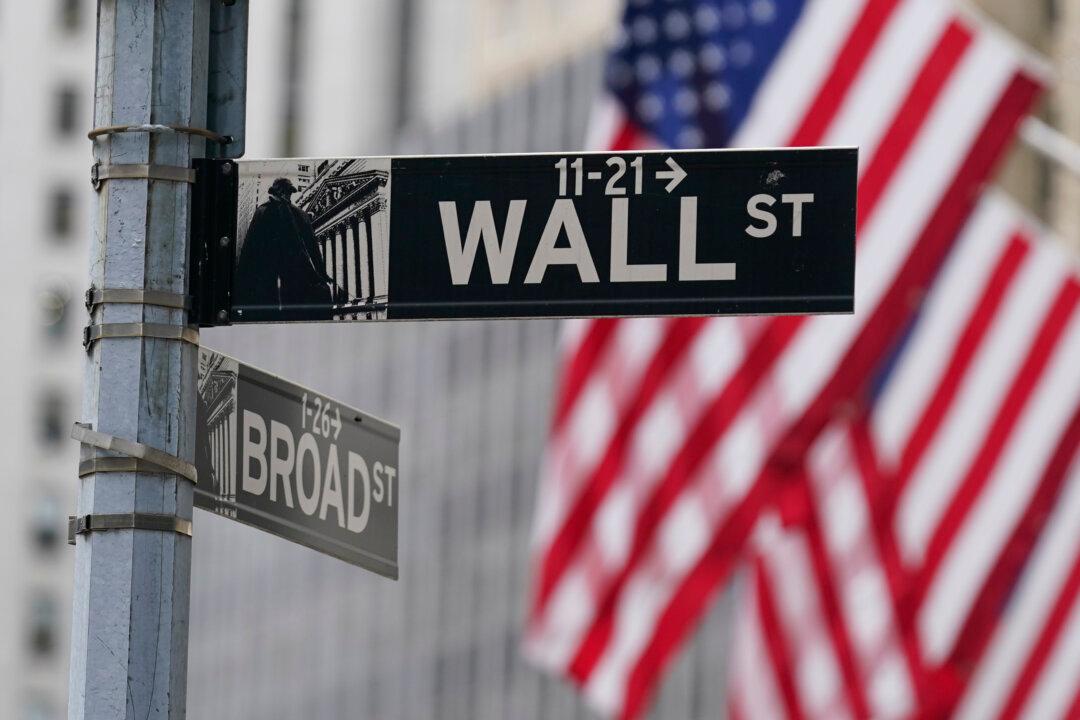NEW YORK—Wall Street rose Tuesday to take a bit of the edge off another losing month.
The S&P 500 gained 26.98, or 0.6 percent, to 4,193.80, a day after clawing back a bigger chunk of its loss for October. The Dow Jones Industrial Average added 123.91, or 0.4 percent, to 33,052.87, and the Nasdaq composite climbed 61.75, or 0.5 percent, to 12,851.24.





